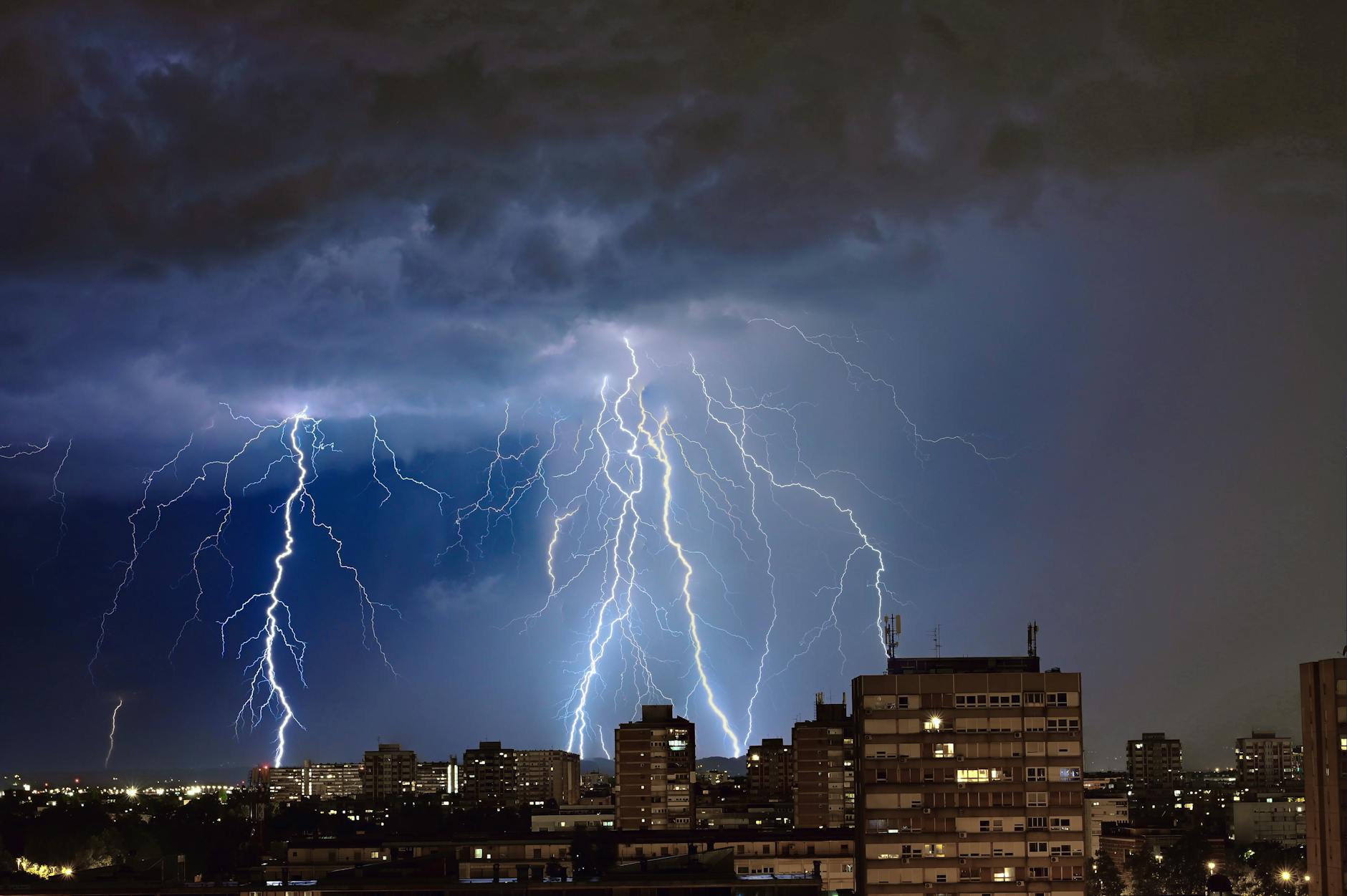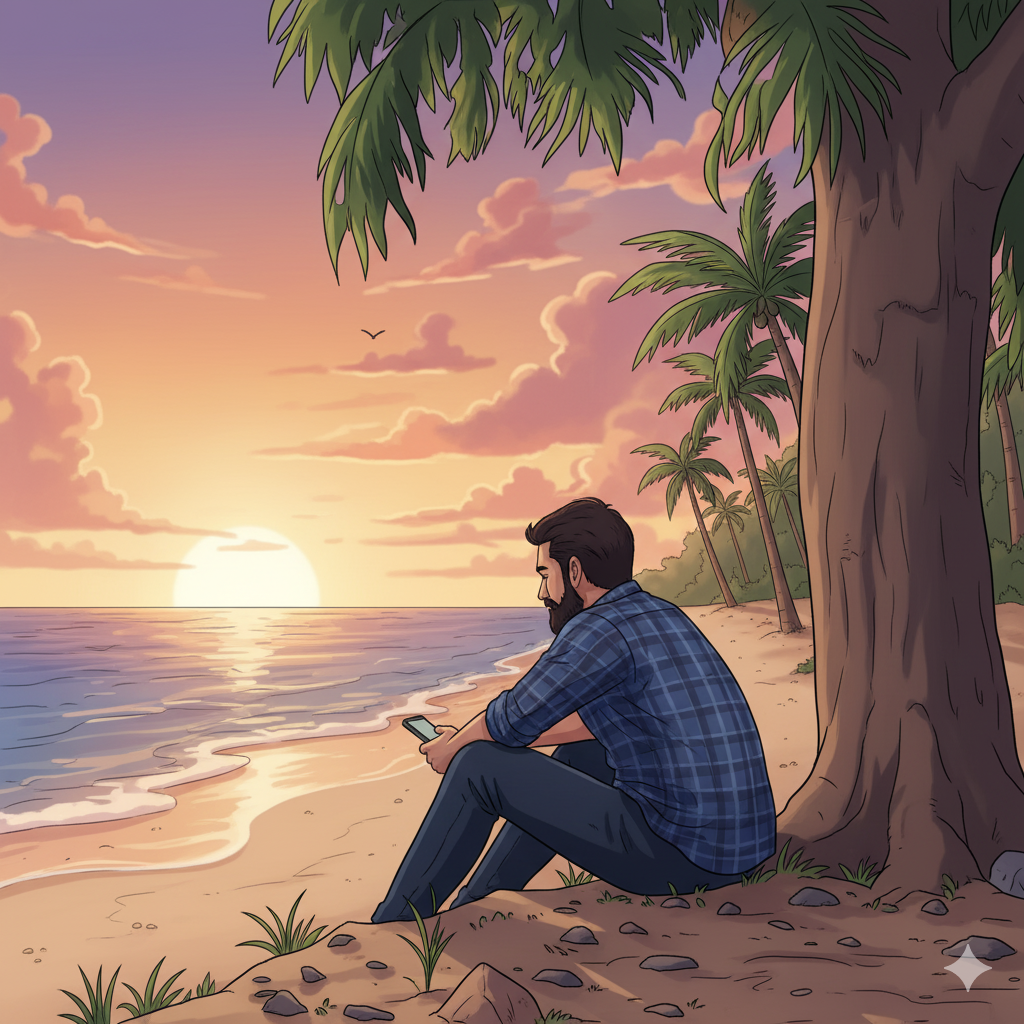Felix Armitage wasn’t your typical weatherman. Sure, he could predict a cold front moving in from the west with the best of them, could tell you the barometric pressure with unnerving precision, and even knew the precise moment a snowflake would kiss the pavement and melt into oblivion. But Felix had a secret, a gift, or perhaps a curse, that set him apart. He could predict emotional storms with frightening accuracy. He could sense the subtle shifts in the collective mood of the city, the creeping anxieties, the bubbling joys, the simmering resentments, all before they manifested in any tangible way. He saw it in the way sunlight refracted through the smog, heard it in the rhythm of traffic, felt it in the slight pressure change against his skin.
It began subtly. A fleeting impression during a live broadcast, a precognitive flicker of an argument erupting in the newsroom just moments before it actually happened. Then, the scope expanded. He began predicting city-wide trends, the rise and fall of public opinion, the inexplicable spikes in crime rates, even the fluctuating popularity of the local baseball team. He saw these emotional tides like swirling colors in the atmosphere, vibrant hues of happiness and despair, anger and serenity, interwoven in a constantly shifting tapestry. His nightly weather reports, peppered with subtly coded warnings about impending “lows” of civic morale or unexpected “gusts” of public outrage, became oddly popular. People tuned in not just for the weather, but for his cryptic pronouncements, his strangely accurate predictions of the city’s emotional barometer.
His superiors at Channel 7 News were initially puzzled, then intrigued, and finally, when the ratings skyrocketed, deeply invested. Felix became a local celebrity, the “Emotional Weatherman,” his face plastered on billboards, his name whispered with a mixture of awe and fear. He was invited to high-profile events, consulted by politicians, sought out by CEOs eager to gauge the market’s mood. But Felix found no joy in his newfound fame. The constant barrage of emotions, the weight of a city’s collective anxieties, began to take a toll. He felt perpetually drained, emotionally exhausted, as if he were constantly weathering the storms he predicted.
One evening, while preparing for the nightly broadcast, Felix saw it: a swirling vortex of deep crimson and angry violet, unlike anything he had witnessed before. It pulsed with a raw, primal energy, threatening to engulf the entire city. He knew, with chilling certainty, that this wasn’t just another emotional fluctuation, this was a cataclysm, a storm of rage and despair that threatened to tear the city apart. He tried to warn his producers, to change the script, to scream into the camera about the impending doom, but the words caught in his throat. The red light blinked on, and he was live.
He stumbled through the usual meteorological jargon, his voice trembling, his eyes darting nervously around the studio. He tried to weave in a veiled warning, speaking of a “volatile atmospheric disturbance” and a “significant drop in the city’s emotional temperature,” but the words felt hollow, insufficient. He could see the storm approaching, feel its oppressive weight bearing down on him, but he couldn’t articulate the sheer terror of what was coming. After the broadcast, Felix rushed out of the studio, ignoring the calls of his colleagues, the flashing lights of the paparazzi. He needed to escape, to find a place of quiet, to weather the storm he had foreseen but couldn’t prevent.
He drove aimlessly, the city lights blurring into a kaleidoscope of anxiety and fear. He could feel the tension building, the air thick with unspoken dread. He pulled over to the side of the road, overlooking the city sprawled beneath him, a glittering tapestry of lights and shadows. And then, it began. A wave of unrest washed over the city, starting with isolated incidents, quickly escalating into widespread chaos. Riots erupted, buildings burned, the air filled with the sound of sirens and screams. Felix watched in horror, the emotional storm he had predicted unfolding before his eyes. He had warned them, tried to prepare them, but his words had been too cryptic, too veiled. He had failed.
Days turned into weeks, the city reeling from the aftermath of the emotional storm. Felix, consumed by guilt and despair, retreated further into himself. He resigned from Channel 7, shunned the public eye, and sought refuge in the quiet solitude of his apartment. He tried to ignore his gift, to block out the swirling emotions of the city, but it was no use. He could still feel them, a constant hum beneath the surface of everyday life, a reminder of his failure.
One morning, weeks after the storm, Felix heard a knock on his door. It was Sarah, a young reporter from Channel 7, the only person who had shown him genuine kindness during his meteoric rise and subsequent fall. She told him that the city was slowly recovering, that people were starting to rebuild their lives. She also told him that they missed him, that they remembered his warnings, however cryptic, and that they understood.
She handed him a letter, a collection of messages from viewers, thanking him for his efforts, for trying to warn them, for caring. As Felix read the letters, he felt a flicker of hope, a small spark of warmth in the desolate landscape of his guilt. He realized then that his gift, his curse, wasn’t just about predicting the storms, it was about helping people navigate them. He had failed once, but he wouldn’t fail again.
He returned to Channel 7, not as the “Emotional Weatherman,” but as Felix Armitage, a man who could see the storms coming and was determined to help his city weather them, one forecast at a time. He learned to refine his predictions, to communicate more clearly, to offer not just warnings, but guidance, hope. He spoke not just of impending “lows,” but of the resilience of the human spirit, the capacity for empathy and compassion, the enduring power of community. And slowly, gradually, the city began to heal, not just from the last storm, but from the countless emotional tempests that had plagued it for so long. Felix, the weatherman who could predict emotional storms, had finally found his true purpose: not to predict the weather, but to change it.

He stood before the camera, the familiar red light blinking, a gentle smile playing on his lips. Tonight’s forecast: partly cloudy with a chance of joy. He knew it wouldn’t always be sunshine and rainbows, that there would be other storms, other challenges. But he was ready. He had learned to listen to the whispers of the wind, to decipher the language of the clouds, to understand the rhythm of the city’s heart. He was the weatherman, and he was finally home.
Years passed, and Felix became a beloved figure in the city, a beacon of hope and resilience. He continued to predict the emotional weather, his forecasts becoming increasingly accurate, his guidance increasingly invaluable. The city, once a volatile landscape of fluctuating emotions, began to find a sense of equilibrium, a newfound resilience. People learned to trust Felix, to heed his warnings, to prepare for the emotional storms that inevitably came their way. And Felix, the weatherman who could predict emotional storms, found peace, not in avoiding the storms, but in facing them, together with the city he had come to love. He had become more than a weatherman; he had become a guardian, a protector, a shepherd guiding his flock through the unpredictable terrain of the human heart.
He often thought back to the night of the great storm, the night he had failed. It was a constant reminder of the weight of his gift, the responsibility he carried. But it was also a source of strength, a testament to his growth, his evolution. He had learned from his mistakes, had honed his abilities, had found his purpose. He was no longer afraid of the storms; he embraced them, knowing that even the darkest clouds eventually give way to the sun. And so, the weatherman continued his vigil, watching over the city, whispering his forecasts into the wind, a quiet guardian against the storms of the heart.






Leave a Reply